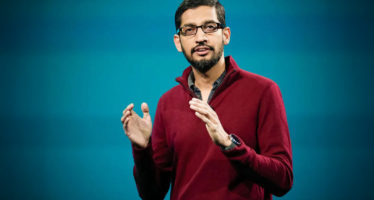From Oil Barrels to Algorithms: Why the Gulf’s Digital Future Needs Chief AI Officers
With oil prices projected to plateau or decline in the coming years, Gulf states are accelerating efforts to diversify their economies. Much of this focus has centred on data centres — massive infrastructure projects designed to export cloud capacity powered by inexpensive energy. But according to leading economists and policy experts, data centres alone won’t secure a thriving digital economy. Without a broader ecosystem of innovation, intellectual property (IP), talent, and enterprise adoption, they risk becoming digital extensions of hydrocarbon exports — energy in, cloud services out.

Author: Bashar Kilani
The real economic opportunity lies in cultivating a dynamic digital economy — one in which AI transforms industries, governments lead with digital-first strategies, and sovereign IP becomes a global export. At the heart of this transformation is a critical yet often overlooked leadership role: the Chief AI Officer (CAIO).
The CAIO as Catalyst of the AI-Native Era
Just as Chief Digital Officers were pivotal to enterprise transformation a decade ago, the Chief AI Officer is set to become the architect of the next evolution. This role goes far beyond deploying machine learning models or implementing chatbots. The CAIO is responsible for reengineering organisations — both public and private — into AI-native enterprises that generate local demand for AI services, protect and scale proprietary IP, and export home-grown solutions across borders.
Bridging National Vision with Enterprise Execution
Gulf states have articulated bold ambitions for AI in their national strategies — from Saudi Arabia’s Vision 2030 to the UAE’s National AI Strategy 2031. Yet these visions will falter without enterprise-level champions who can translate them into meaningful action. The CAIO becomes that translator: pinpointing where AI can deliver measurable value, embedding it into daily operations, and aligning innovation efforts with national strategic goals.
Building Talent Pipelines and Intellectual Property
Billions are being invested in AI-focused universities, coding academies, and talent-attraction initiatives. But these investments require leaders on the ground willing to nurture and retain talent. Without that commitment, brain drain remains a serious risk. CAIOs play a central role in building in-house AI capabilities, launching applied research labs, and forming partnerships with institutions such as MBZUAI and SDAIA. Their goal? To develop proprietary algorithms and tools that remain within the region — and ultimately form a foundation for sovereign IP exports.
Driving Demand to Fuel Digital Infrastructure
For data centres and sovereign cloud platforms to evolve beyond infrastructure assets, enterprise demand must scale. The CAIO is responsible for driving AI adoption throughout the organisation — not as one-off pilot projects, but as foundational business tools. By identifying high-impact use cases, prioritising local AI vendors, and serving as early adopters of sovereign AI models like the UAE’s Falcon LLM, CAIOs can accelerate the region’s transition to a robust, homegrown digital economy.
Governance, Ethics, and Public Trust
In an era defined by growing scrutiny around AI ethics and data sovereignty, the CAIO also serves as the enterprise’s ethical steward. Responsible AI governance, transparent reporting, and alignment with emerging regulatory frameworks are not optional — especially in the Gulf, where public trust and reputation are critical assets. CAIOs ensure that AI systems are deployed with fairness, accountability, and transparency at their core.
The Road Ahead
Gulf countries are making bold moves: AI investment is ramping up, sovereign platforms are being launched, and data infrastructure is expanding rapidly. But infrastructure without enterprise demand, internal capabilities, and exportable IP is not enough. The next wave of diversification will be defined by organisations that embed AI into their DNA — and that shift must be led by executives with the authority, technical insight, and strategic vision to make it happen.
That leader is the Chief AI Officer.
About the Author
Bashar Kilani held senior leadership roles at global technology and consulting firms, including Accenture and IBM, and served on the boards of several corporates, universities, and future foresight institutions. He later founded AI360 Innovations Ltd, an advisory firm focused on the digital economy based at the Dubai AI Campus in DIFC, and is currently Managing Partner at Boyden, a leading leadership consulting and executive search firm.
You may have an interest in also reading…
The World Bank: Accelerating Africa’s Aspirations
As Sub-Saharan Africa develops rapidly, it is estimated that the continent will need millions of engineers just to reach a
Real Estate Industry Looks to Qatar for Opportunities
Cityscape Qatar 2014 set to focus international spotlight on real estate and construction boom in Qatar Doha, Qatar, May 15
Can Google Escape Nvidia’s Gravity?
If Gemini’s training run proves anything, it is that Google’s in-house silicon is no longer a science project. The bigger
















































































